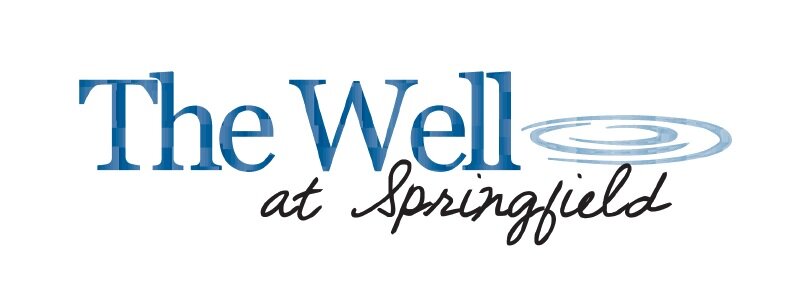Covenant & Community
 We are a community of faith…Those words were chosen at the very beginning of The Well’s life together and we’ve been struggling to live into them.We’ve been struggling because forming a community is hard work.It’s slow work. It takes time and trust and perseverance.Kathy Escobar, co-pastor of The Refuge in Denver, Colorado talks about their community’s similar journey. In her book, Down We Go: Living Into the Wild Ways of Jesus, she says there’s a reason it’s such hard work:
We are a community of faith…Those words were chosen at the very beginning of The Well’s life together and we’ve been struggling to live into them.We’ve been struggling because forming a community is hard work.It’s slow work. It takes time and trust and perseverance.Kathy Escobar, co-pastor of The Refuge in Denver, Colorado talks about their community’s similar journey. In her book, Down We Go: Living Into the Wild Ways of Jesus, she says there’s a reason it’s such hard work:
“I think it can be fairly easy to build what we typically and historically think of as ‘church’ or a ‘ministry.’ There are fairly good business models for it, which usually include a clear vision, a financial foundation, and strong leaders to carry it out. It’s trickier to find ways to knit hearts together and gather around a common purpose while allowing for a wide range of diversity and perspectives. Nurturing a spirit of justice and action, sharing meals and resources, and creating a safe and challenging container to learn to love and be loved by Jesus, ourselves, and others requires a whole different way of thinking.”
She calls this kind of messy community formation the path of downward mobility. It’s an all-too-often foreign idea in our consumeristic church culture:
“We also found that it was not as attractive to churchgoers as we hoped. Many people weren’t interested in downward mobility, even though this is what Jesus invites us into. People were looking for inspiring teaching, good music and something amazing for their kids once a week.”
I think you get the idea. Following Jesus in community has its challenges.In choosing to focus on community over attractional church, one size fits all membership has never seemed to fit us. Membership seems less about relationship and more about a joining an organization. Instead, we’ve been asking if there is a meaningful way Well participants can enter and express a deeper commitment to the community.These questions have led us to explore covenant and the idea of “covenant participation”.Covenant was the theme of our recent spiritual renewal weekend together. I’ve been reflecting on what we learned (& how it relates to community) and a few aspects of covenant strike me.First, in scripture, God uses covenant to define the relationship ... again and again.That’s right. God did not establish a once and for all covenant with Israel. Covenants were remade in response to various events, failures and milestones in the lives of the people. They became more specific over time, culminating in flesh and blood incarnation.Written covenants defined and redefined the God to human relationship; the covenant revealed through Christ embodied that relationship. Covenants were and are a vehicle for defining a maturing relationship.Second, covenants make room for complaint.I’m not just talking about the chronic complaining of people who can always find something to complain about. I’m talking about lament, the practice of pouring out our hearts to God, begging for God’s attention and intervention, and stumbling toward hope.Lament is seldom practiced in our culture and is almost never practiced in a casual, non-committed relationship. I don’t know about you, but if I’m going to share what’s heavy on my heart, I’m going to choose to do it in the context of a trustworthy relationship. Covenant relationship makes room for lament, and practicing lament continues to be one of the most powerful ways people grow, change and connect to God and each other.This third aspect may already be obvious, but it seems important to name:Covenant involves risk.Even the covenant expressed through Christ’s death and resurrection does not keep us faithful to the relationship. It makes God’s intentions toward us very clear; it does not guarantee our loyalty. Maybe that is not the point of covenant anyway.The point is that by freely sharing our commitments, we choose to enter the unpredictable waters of relationship because we believe we will encounter God there. We will encounter God in the high moments of community, the struggles we share, the grief we bear and the work we commit to together.Covenant and community may not attract churchgoers, but maybe that’s not the point either. We are called to embody Christ and it was Christ’s highly relational (and inclusive) love that caused the religious folks of his day to reject him. They wanted sterile practices, not intimate, costly relationship.I am excited about how practicing covenant might deepen our relationships, shape us as a community and pave the way for us to participate even more fully in the kingdom of God. It will not be for everyone and will not be required of anyone. Covenant will not get you any more rights or raise your community status. For those who choose to, though, I hope and pray it will be another significant way to practice the way of Jesus together.Peace + love,Susan
